Fix: Windows Server not accepting new Product Key
The Product Key fails to change in a Windows Server mainly because of a software glitch in GUI. It can also be caused by the problematic user account. Users tend to skip entry of the product key during the installation of a Windows/ Windows Server OS. After the installation, users use an option of the “Change product key” to activate Windows as per their convenience. The problem arises when the entered key at the “Change product key” step is not accepted.
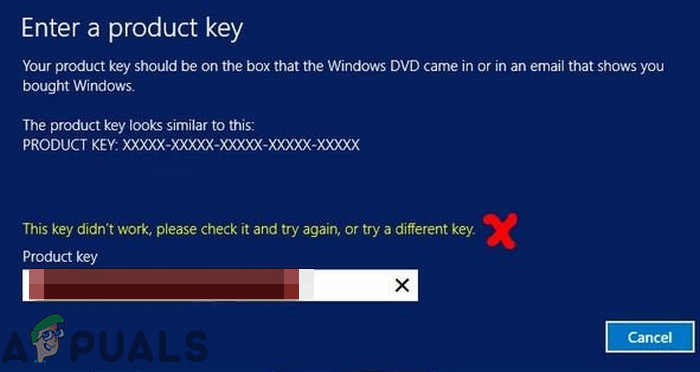
It is important to note that we already assume that you have a genuine Windows Product Key. If you are using a pirated key, these solutions will not work. Windows identifies generated product keys as of now and blocks them effectively.
A software glitch in the GUI of the system can hinder the activation process. This is a very common scenario that was seen in a number of users. A corrupt/wrongly configured user account used by the user to activate Windows can cause this issue as well. There is a fixed number of times you can use a Windows key to activate Windows. If the key has reached the maximum limit to activate Windows, then the user will face the problem under discussion.
Pre-Requisite
- Once again make sure that you are entering the correct key.
- Run the SFC scan to rule out any corruption of operating system files.
- If you were using the built-in local administrator account or domain administrator account to activate Windows, then use another account with administrator privileges to activate Windows
- Make sure the key you are using has not reached its maximum limit of activating the Windows Server, if so, then contact Microsoft support to increase the limit.
Run Windows Activation Commands in Elevated Command Prompt
A software glitch in the GUI system can cause non-activation of Windows. In that case, using the specific commands in an elevated command prompt may solve the problem. These commands will force the activation to avoid any issues. But there are two case scenarios; one when you are activating the standard version and the other when you are activating the evaluation version. Before moving on, do note that the SLMGR /IPK command cannot be used directly with VLSC MAK key or Retail to activate the evaluation edition.
For Non-Evaluation Editions
- Log in to your Windows Server.
- Open Settings and then click on System.
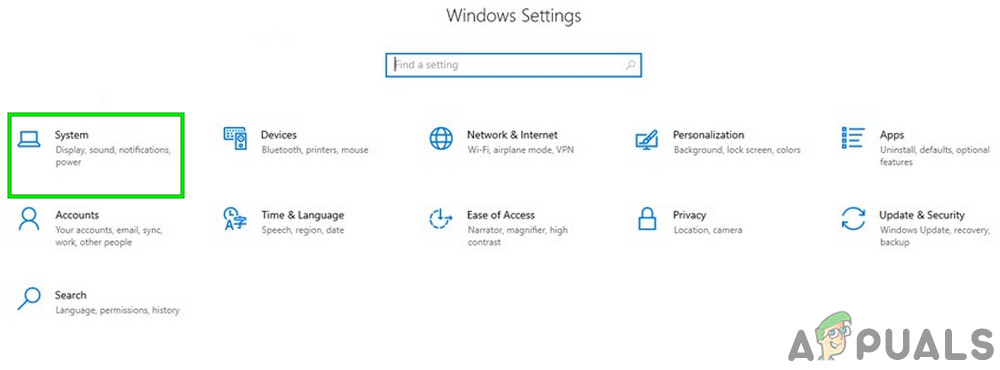
Open System in Windows Settings - In the left pane of the window, click on About and check Edition if it is Windows Server Standard or something similar non-evaluation edition.
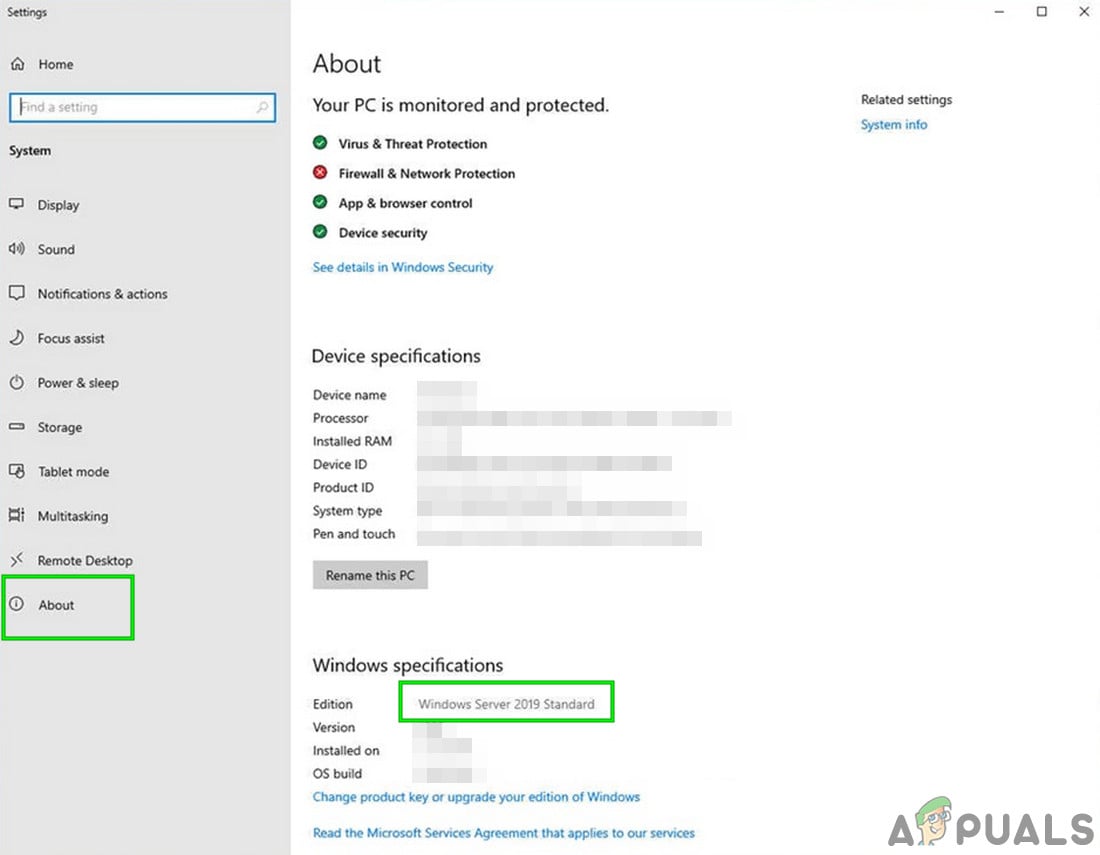
Non-Evaluation Version of Windows Server - Open command prompt as administrator
- Type the following command.
slmgr /ipk XXXXX-XXXXX-XXXXXX-XXXXX
In place of XXXX-XXXX-XXXXXX-XXXXX enter your Windows product key with dashes.
- A pop up of Windows Script Host window will appear showing “install product key XXXX-XXXX-XXXXXX-XXXXX successfully. Click OK to close the window.
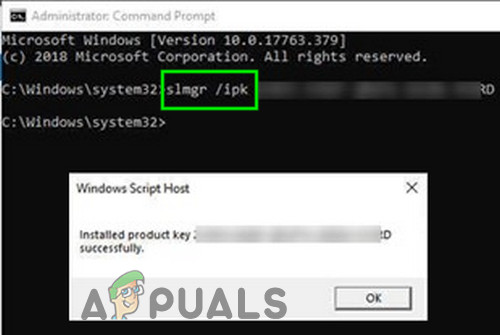
Windows Script Host Popup Showing Install Product Key - Type the following command to activate the license key.
slmgr /ato
- Another pop-up of “Windows Script Host” will appear showing “Activating Windows, Server Standard edition (XXXXX-XXXXX-XXXXXX-XXXXX). Product activated successfully”. Click OK to close the window.
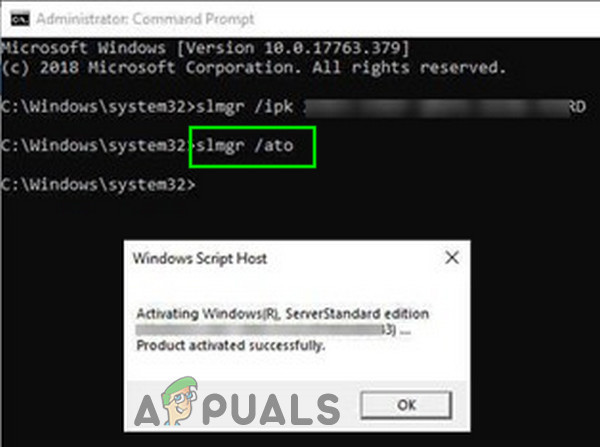
Windows Script Host Popup Showing Product Activated Successfully - That’s it, you may have activated the Windows Server edition. If you are still having issues, then try the above commands with Power Shell.
For Evaluation Editions
- When your server edition shows Windows Server Standard Evaluation or something similar to Evaluation, you cannot use the SMLGR command directly to activate Windows.
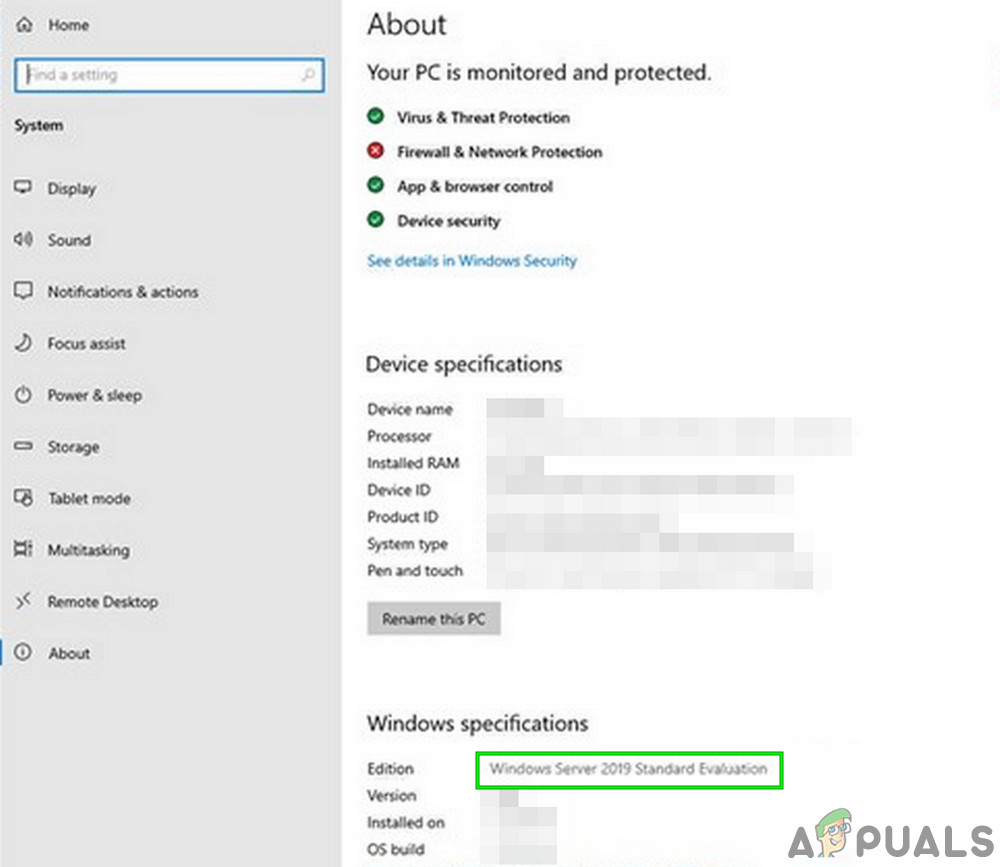
Evaluation Version of Windows Server - When SLMGR command is used directly to install the product key (either Retail or VLSC MAK) to the evaluation edition of Windows server then the message “Error:0xC004F069 On a computer running Microsoft Windows non-core edition…” will pop up.
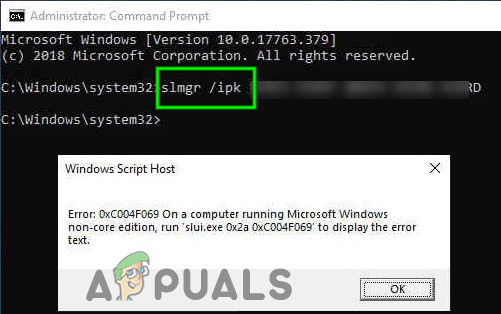
Error 0xC004F069 On a Computer Running Microsoft Windows Non-Core Edition - Moreover, the VLSC MAK key cannot be used to upgrade Windows Server evaluation edition to standard (or Datacenter) edition, if used you will get “Error 1168 the specified product key could not be validated…”
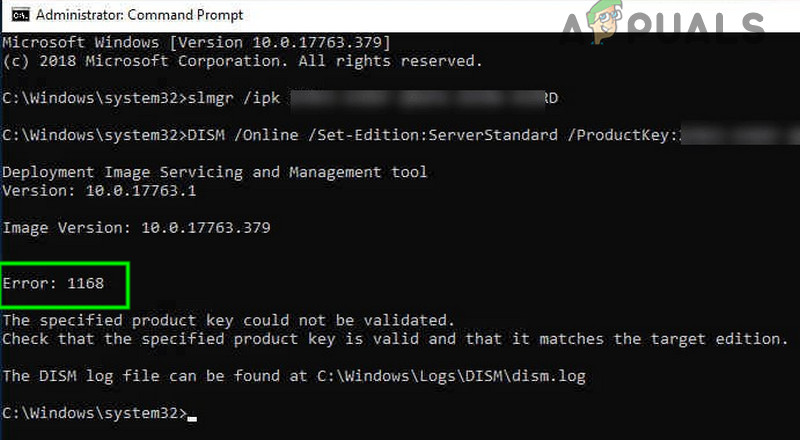
Error 1168 The Specified Product Key Could Not Be Validated - A Retail product key is required that will be used with DISM command to upgrade Edition from evaluation edition to standard (or Datacenter) edition
- Launch Command Prompt with administrator privileges.
- Type following command which will upgrade evaluation edition to Datacenter or Standard edition as pet the given key.
- Standard Edition:
DISM /Online /Set-Edition:ServerStandard /ProductKey:xxxxx-xxxxx-xxxxx-xxxxx-xxxxx /AcceptEula
Replace XXXX-XXXX-XXXXX-XXXXX-XXXXXwith a Retail product key with dashes.
- Datacenter Edition:
DISM /Online /Set-Edition:ServerDatacenter /ProductKey:xxxxx-xxxxx-xxxxx-xxxxx-xxxxx /AcceptEula
Replace xxxxx-xxxxx-xxxxx-xxxxx-xxxxx with a Retail product key with dashes.
- Click Y and restart the server.
- To install the VLSC MAK license, log in to the server after the reboot.
- Open Command Prompt as administrator,
- Type following command.
slmgr /ipk XXXXX-XXXXX-XXXXX-XXXXX-XXXXX
Replace XXXXX-XXXXX-XXXXX-XXXXX-XXXXX with your VLSC MAK key.
- A pop-up Windows Script Host window will show, with the following message “install product key XXXXX-XXXXX-XXXXXX-XXXXX successfully”. Click OK to close the window.
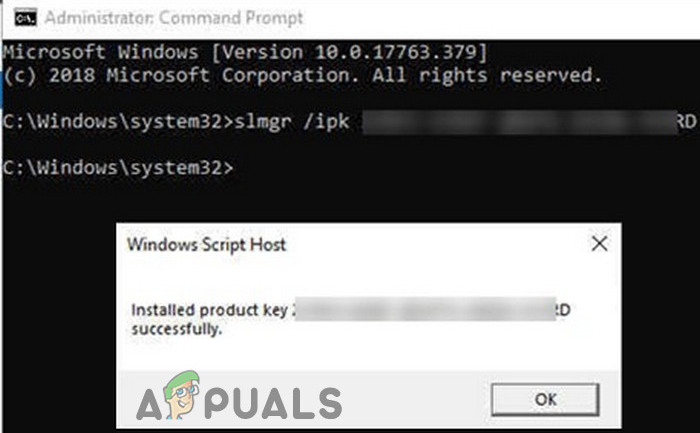
Installed Product Key Successfully - Type following command to activate license key
slmgr /ato
- A pop-up Windows Script Host will show up with the message “Activating Windows ®, ServerStandard edition (XXXXX-XXXXX-XXXXXX-XXXXX). Product activated successfully”. Click OK to close the window.
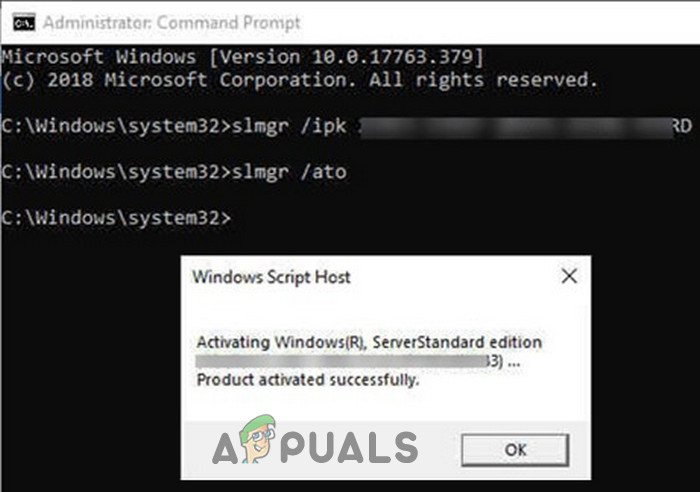
Product Activated Successfully - If you still cannot activate, then try the above steps with the Power Shell.





